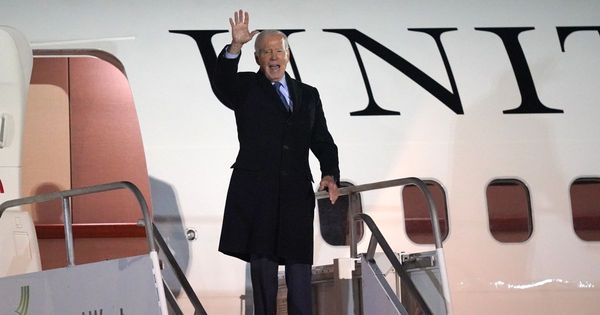
The head of the inquiry into the horsemeat scandal in 2013 has warned the UK is isolated from intelligence over food supply chains in Europe, increasing the risk of new scandals.
Professor Chris Elliott chaired the government inquiry into the scandal in which horsemeat was substituted for beef in a range of products. Millions of products were withdrawn from supermarket shelves after tests revealed that they were adulterated with horsemeat.
A decade on from the scandal, Elliott said that Brexit meant the UK no longer benefited from membership and intelligence briefings of the EU Agri-Food Fraud Network (FFN), which helps coordinate activities concerning cross-border food fraud. The UK also no longer has full access to the EU’s rapid alert system for food and feed (RASFF) but does receive alerts for issues directly affecting the UK.

Elliott, professor of food safety and founder of the Institute for Global Food Security at Queen’s University Belfast, said: “We have lost a lot of control over the food we consume, particularly food produced outside the UK. There is now no sharing of intelligence on fraud that is happening or suspected to be happening on mainland Europe.” Elliott considers he was given more information from personal contacts in the FFN than “the entire UK government” now has access to.
He said the UK also no longer benefits from the intelligence from checks conducted in Rotterdam in the Netherlands, one of the biggest food ports in the world. UK ports also do not have the same level of infrastructure or facilities to ensure similarly robust checks for food imported directly from third countries or from the EU.
Most consignments of animals and animal products imported from non-EU countries are checked at a border control post, but the government has repeatedly delayed checks on EU imports. Ministers this month announced that a new system of post-Brexit border checks will be introduced from the end of October.
Elliott said he was also concerned at the cut in budgets in England for officials investigating food fraud and safety. He said: “Local authorities have massively cut back on food surveillance. There are private audits, but many are not fit for purpose.”
It emerged last month after an investigation by Farmers Weekly that a criminal investigation was under way into allegations that a rogue meat supplier falsely labelled large quantities of foreign pork as British. The Food Standards Agency (FSA) said there is no evidence it was unsafe or there was an increased risk to consumers.
Elliott said that, since the horsemeat scandal, there have been overall improvements in combating food fraud thanks in part to the creation of a National Food Crime Unit in the FSA, which was one of his key recommendations. He also said there is better sharing of information in the industry with the formation in 2015 of the Food Industry Intelligence Network, with members from retail, food production and the hospitality industry. But, he said: “The impact of Brexit has taken us back.”
A spokesperson for the Department for Environment, Food and Rural Affairs said: “We back British farmers, which is why we implement strict biosecurity controls on high-risk imports to ensure no products cross our borders which could pose a risk to the industry.
“We stringently monitor emerging outbreaks across the globe, assess any risks to our food supply chain and work closely with the National Food Crime Unit to tackle food fraud while promoting the sale of home-grown high-quality British produce. We also have powers to check and seize non-compliant products, and will not hesitate to do so.”










